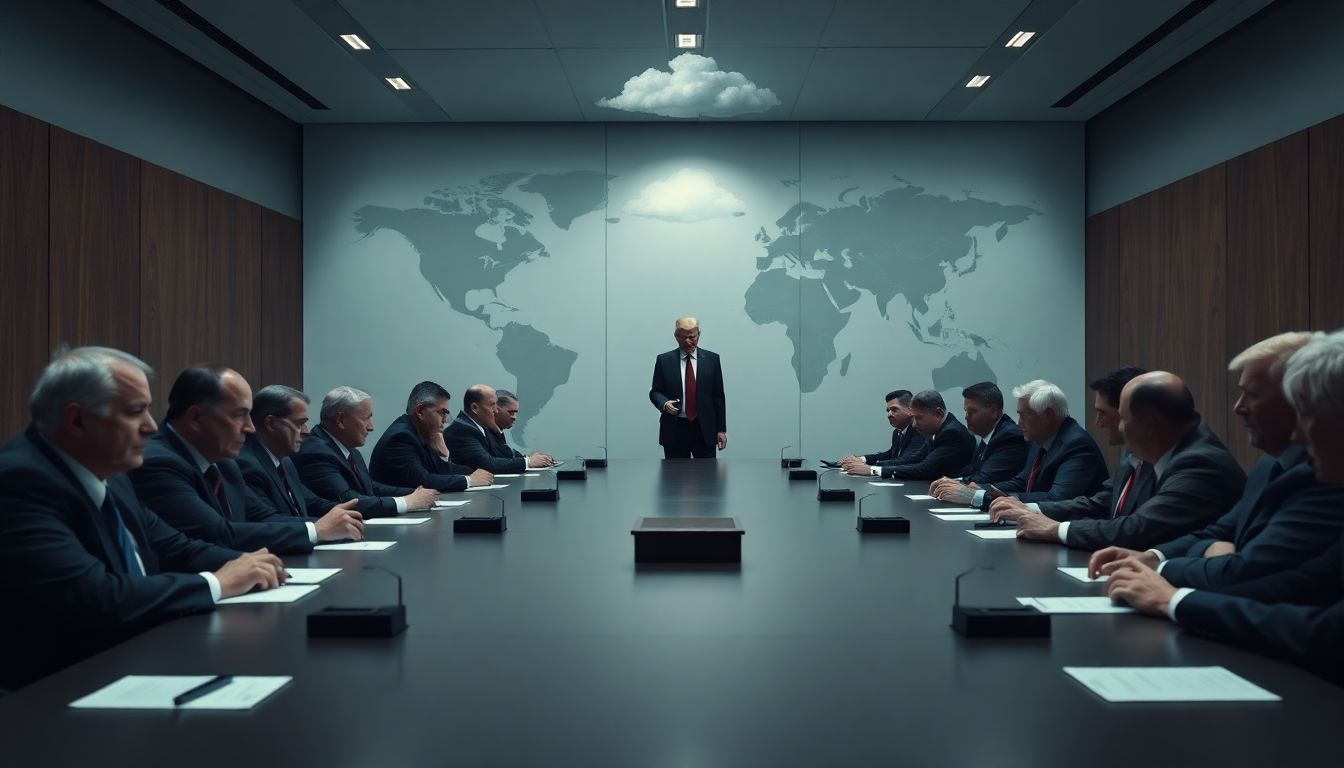
Imagine your small business. You import steel to make custom furniture. A big tariff hits. Your costs skyrocket. You might even close down. This is the fear as Trump plans new tariffs. These tariffs may impact goods from Europe. European leaders are warning about the risks. This article looks into their concerns. We'll explore the possible fallouts of a trade war. And we'll examine ways to avoid one.
The European Response: A United Front Against Tariffs
Europe isn't happy about the tariff plans. Key leaders are speaking out. They are worried about their economies. They don't want a trade war with the U.S. Here's how they're reacting.
Official Statements and Declarations
Macron and Scholz are concerned. They've issued strong statements. Macron warned of "economic consequences." Scholz said it could hurt everyone. Their language is serious. They want to avoid a trade conflict. The tone reflects the urgency of the situation.
Diplomatic Efforts to Avert Trade War
Europe is trying to talk to the U.S. Meetings are being planned. Negotiations could happen soon. The EU might take action. These measures might counter the tariffs. They want to find a solution.
Economic Consequences for Europe
Certain industries are at risk. Steel and auto are two examples. These sectors rely on trade with the U.S. Tariffs could mean job losses. This could slow down Europe's economy. Trade wars rarely benefit anyone.
Understanding Trump's Tariff Strategy: Motivations and Goals
Why is Trump doing this? He says it's about "America First." It's a plan to protect U.S. jobs. But what does this really mean? Lets examine it more closely.
"America First" Policy and Economic Nationalism
Trump's tariffs align with "America First". He wants to bring jobs back to the U.S. This approach puts the U.S. first. It can sometimes anger other countries. Economic nationalism is a driving force.
Addressing Trade Imbalances and Protecting Domestic Industries
Trump talks about trade imbalances. He says the U.S. loses out. He wants to protect industries like steel. Are his claims valid? Experts have different opinions. It's a complex issue.
Potential Political Gains
Tariffs could boost Trump's support. His base likes the "tough" stance. It strengthens his position in trade talks. It's a political move, too. Some people will agree, and some won't.
Potential Global Economic Impact: Beyond Europe and the US
A trade war doesn't just hurt the U.S. and Europe. It can affect the whole world. Developing nations could suffer. Here's how it could spread.
Disruption of Supply Chains and Increased Costs
Tariffs mess up supply chains. Things become more expensive. Consumers pay more for goods. Businesses also face higher costs. It's a ripple effect.
Impact on Emerging Markets and Developing Countries
Emerging markets rely on trade. A trade war hurts them badly. They might struggle with debt. It can set back their growth. It isn't fair for them.
The Threat of a Global Recession
A trade war might cause a recession. Key signs would be a drop in trade. Another sign would be a fall in investments. Experts watch these indicators closely. No one wants a recession.
Historical Precedents: Lessons from Past Trade Wars
Trade wars have happened before. We can learn from them. The past shows the dangers. History gives us valuable lessons. What can we learn from them?
The Smoot-Hawley Tariff Act of 1930
Smoot-Hawley made the Great Depression worse. It raised tariffs a lot. Other countries retaliated. Trade crashed, which was bad. It teaches us to be careful.
Other Historical Examples of Trade Disputes
There have been other trade wars. They hurt economies. Political tensions increased. Cooperation is better than conflict. Learning from the past is crucial.
Key Lessons for Avoiding a Trade War Today
Don't repeat past errors. Talk to each other. Find common ground. These are key takeaways. Policymakers must be smart. Trade is a complex issue.
Finding a Path Forward: Possible Solutions and Negotiations
How can we avoid a trade war? There are ways to find solutions. Negotiation is key to that. Let's see what is possible.
Diplomatic Negotiations and Compromise
Compromise is essential. The U.S. and Europe can find deals. They can address concerns fairly. Talking helps to avoid conflict. It's not always easy, but it's important.
Multilateral Trade Agreements and WTO Reform
Trade agreements promote fair trade. The WTO can help settle arguments. Reform could make it stronger. These things ensure a level playing field. International trade is important.
The Role of International Organizations
The IMF and World Bank can mediate. They can promote stability. These groups play a vital role. Cooperation is better than conflict. We need these organizations.
Conclusion
European leaders are very worried. A trade war has real consequences. Diplomacy and working together is vital. We can avoid an economic crisis. Stay informed and talk about trade policies.